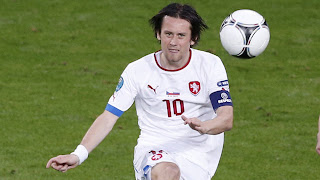Coalition or Darwinian competition of the techno kind?
By Luke Kristopher Davis
Brief market update
Google is the most popular search engine; it has a simple and ingenious interface, extremely useful and powerful search engine and provides other services for web users such as Google adsense, affiliates and Google +.
It has been accused, by a senator of an antitrust panel, of acting as monopoly in the search engine market.
Senator Herb Kohl said:
But you do recognize that in the words that are used and antitrust kind of oversight, your market share constitutes monopoly, dominant -- special power dominant for a monopoly firm. You recognize you're in that area?- Herb Kohl
Eric Schmidt came close to admitting that Google is a monopoly, but his response was vague. Google holds 80.77% of the search engine market. However, a business in a market is not a monopoly until it is legally labelled as one, until then Google is free of antitrust restrictions.
As you can see Google is the big player, Bing on the other hand consumes only around 4% of the market.
Power and mechanisms of present search engines
If you search a key word or phrase into Google you will be confronted with a huge list of relevant/popular sites associated with that word or phrase. For example I searched for Queen into Google and this is what came up:
A Wikipedia page for Elizabeth II was the primary result, maybe because a lot of users wanted to find more information on her due to the Jubilee celebration. Queen the band (another wikipedia page) was second. The majority of the results were about the Queen or related current news. Also it is interesting to note that 1,030,000,000 results were found in 0.25 seconds... which is pretty quick.
Bing on the other hand only provided a total amount of 715,000,000 results which is lagging behind Google. The primary result is Queen's official band website then Queen's wiki page. Elizabeth comes into play about 5 results in. This difference in primary results is due to different algorithms which govern the two search engines information infrastructure and hence result output.
The foundation of both search engines is of a similar kind. They have programmed algorithms which focus on strings of words and relate these together with sites. The engines merely pick out links to sites which contain a sufficient amount of information about the 'search' string of words and the string of words themselves.
This is why when I search queen the engine cannot differentiate between the band and the actual Queen Elizabeth II. The engines do not know what context we mean, the engines are limited in their comprehension of the nuances of search words.
This is apparently about to change as Google and Microsoft have recently been building knowledge graphs (Microsoft calls its graph Satori (meaning Enlightenment)) which include new 'trawlers' which are algorithms which when a user searches for something say 'Queen' the 'trawlers' search the knowledge graph as well as sites.
The selection of data is based on previous searches on this topic, so Google knows in this case that users are interested in things like average height and lifespan (for a 'beagle'). - Jim Giles NewScientist
Knowledge Graphs
Google's knowledge graph and Satori make use of graph theory and 'entities'. Graph theory is part of discrete mathematics, you may have encountered it in one of your A-Level mathematics modules. It is the basis of knowledge graphs because the nodes act as 'entities' which could be nouns representing real objects or abstract concepts. The paths between them represent links between entities which resemble linguistic connections or physical relationships.
Both companies have used entity databases before but now they are expanding there density, power and sheer size. Building ever more intricate connections between entities and finding more entities. Currently finding new entities is moderately easy as each new entity has a sort of background for which the algorithms can base their search on.
These knowledge graphs are growing extremely fast and they sort of resemble the brain. Nuerons and nueral connections are quite similar to abstract graphs, however our brain seems to have different stations which have different processing abilities for example the hippocampus area is designed for memory and the parietal lobe is an area for cognitive analysis. Maybe Google and Microsoft could take advice from natures sophiscated human brain.
Google and Bing will differ in the outputs of their knowledge graphs, Microsoft intend to be more 'business like' offering links to transactions and actions based on their Satori however google intends, as Thakur (of google) says, to return knowledge.
A mini online revolution?
As we have seen if Google and Microsofts renovation plans for their search engines succeed and expand then it will influence other search engine market shareholders to do also. Google especially will influence website programmers and users with their new engine system.
However will it work? Google and Microsoft plan to answer queries such as 'who invented the light bulb and why?' with definitive answers. This means that we cannot just input lists of keywords or phrases. Maybe they will incorporate that into the new system, giving the user options to choose popular queries already asked.
This new search engine plan sounds exciting and will no doubt save time on finding knowledge and provide a more efficient service.
Also this is on the brink of research, computing power and complexity will no doubt be pushed to its limit as these knowledge graphs become ever more complex and vast.
This could be the start to a hyper brain (CEREBRO- See X-men) where a cyber network of information could actually understand language to a degree.
How very exciting!



















